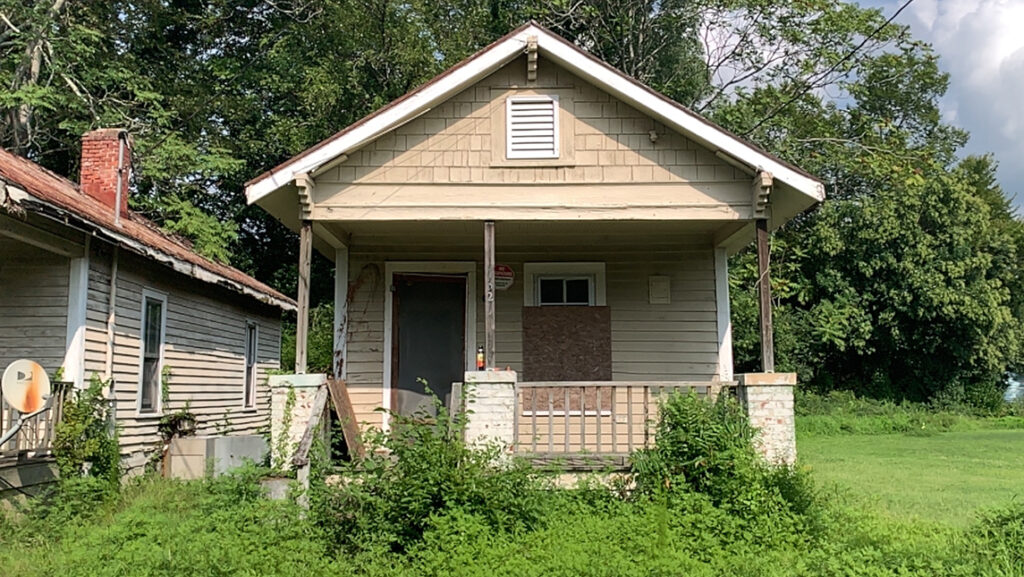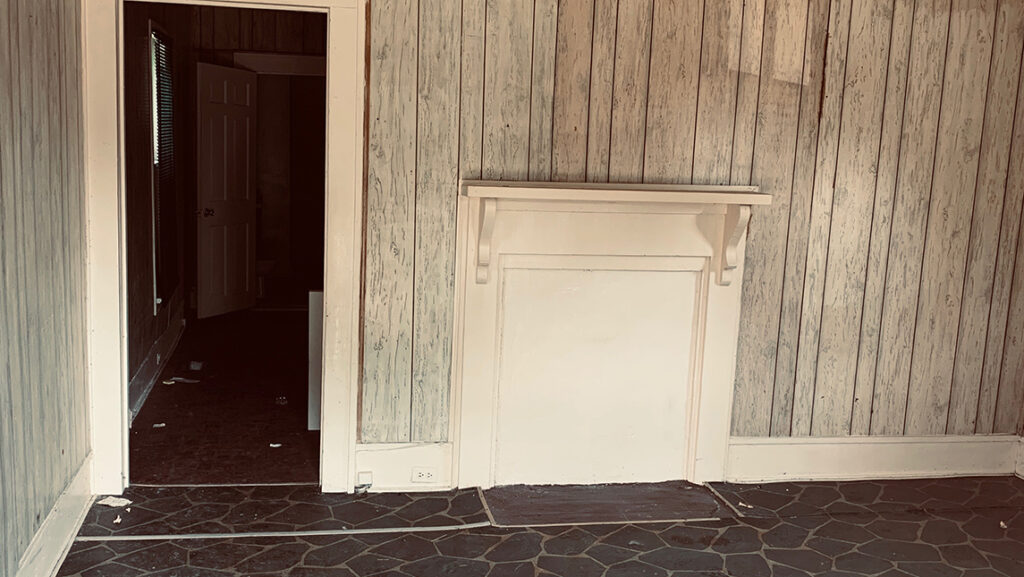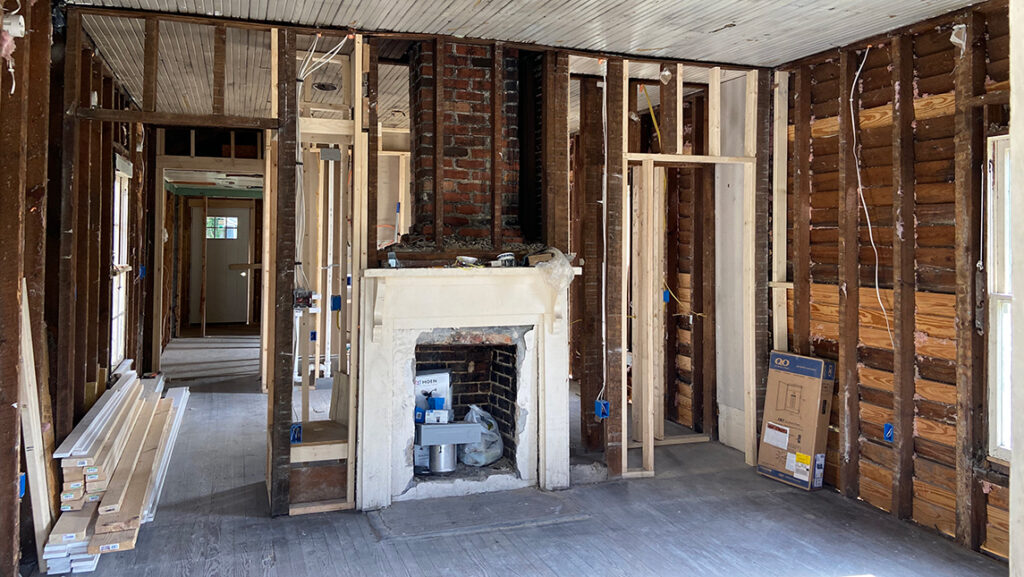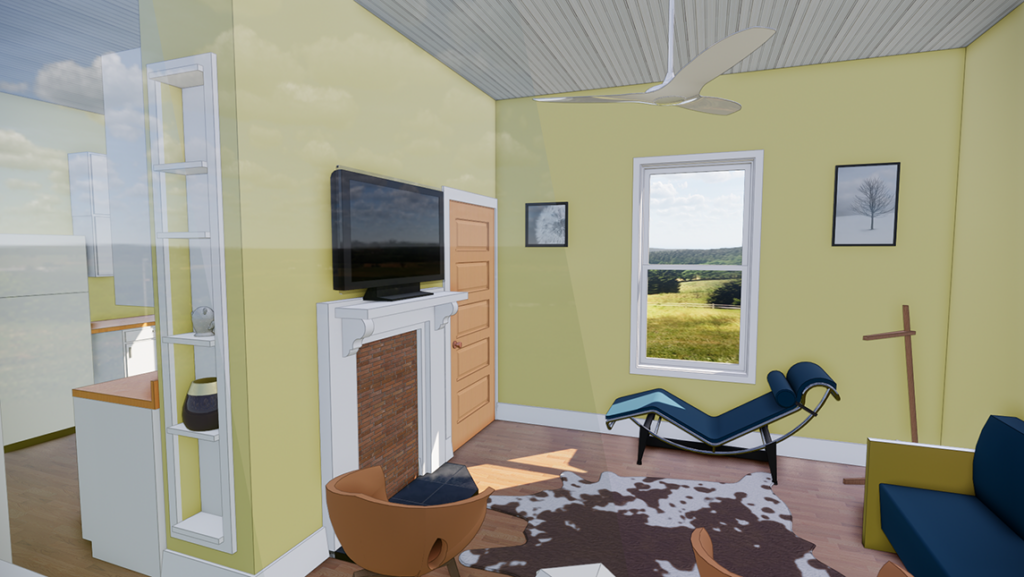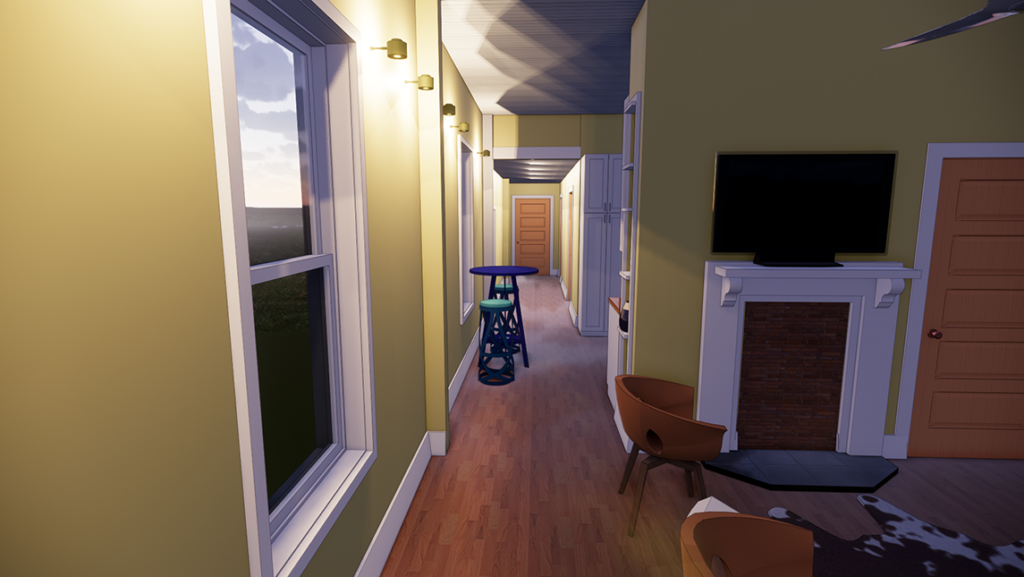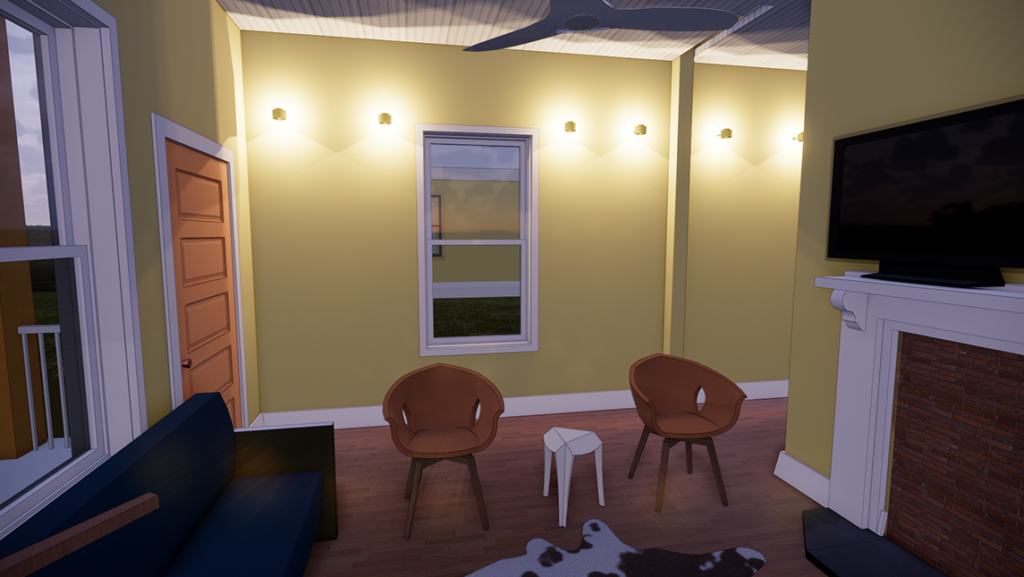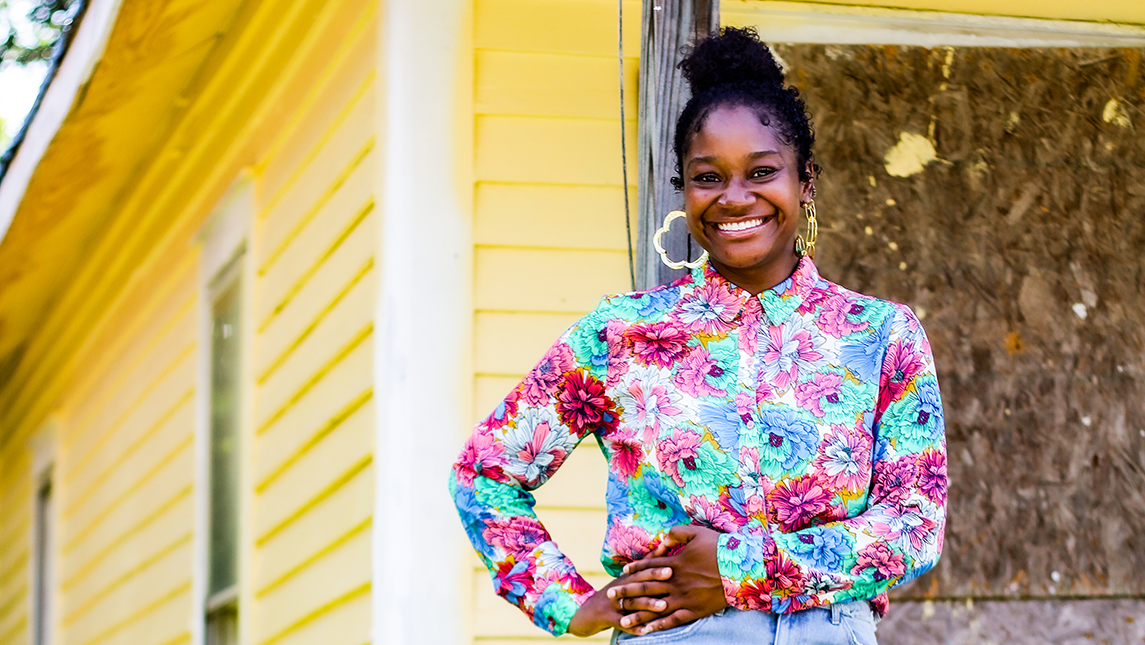
Master’s student Monica T. Davis is graduating from UNC Greensboro with an impressive resume: an MFA in interior architecture, a certification in preservation, a job at an award-winning architectural firm in Hawaii, and a legacy as a hometown history hero.
Davis became interested in preservation while living in a converted condo that was originally a laundromat. Modern finishes adorned the historic bones of the building, tying together old and new, and she yearned to learn more.
“It was amazing to me that an old building could be turned into something completely new. Every building has a story, and I want to uncover those stories.”
While searching for schools to pursue a career in preservation, she found that UNC Greensboro was the only school in the state that offered a preservation certificate program, and she was impressed by the interior architecture department’s hands-on approach.
During field school, she got her first taste of preservation by repointing brick piers under the foundation of the Historic Methodist Church on Portsmouth Island, and replacing shingles on roofs in Portsmouth Historic District. As part of the Main Street Fellows Program, she traveled to small downtowns across the state designing facade enhancements for several main street buildings.
“The department really focuses on serving communities, which helped me realize that not only was this a great career choice for me, but I could use my career to give back.”
For her thesis, Davis was researching the effects of gentrification when she stumbled across her hometown of East Wilson on the National Register of Historic Places as of 1988. She had no idea that the district was once home to a major tobacco industry and the largest population of working-class African Americans in the state.
Many of the residents at that time lived in one of 301 shotgun houses, or narrow rectangular homes, usually no more than 12 feet wide. As the tobacco industry moved overseas, most of these homes were left abandoned and eventually demolished. Today, only 88 of those houses remain.
After learning about the cultural significance of the shotgun houses, Davis seized the opportunity to turn the abandoned, historic dwellings into tiny homes that could bring back life and culture to the area. She purchased four shotgun houses and one bungalow in the area, and began the process of gutting and restoring them. She designed the interiors of the homes, deliberately preserving the historic elements such as the original windows, floors, and ceiling. She also kept her floor plans true to the definition of a shotgun house, with circulation between the front and back doors, to honor the culture and architectural style of the community in the ’80s.
It was important to Davis to involve community members in her project, too. She held workshops on craftsmanship and taught classes on the district’s history through her nonprofit organization, Rebirthing Our Cultural Kingdom.
“A lot of times, preservation isn’t prevalent in African American culture. The cultural heritage of the East Wilson district is significant, so we are rebirthing what has been lost for so long. To be able to preserve the culture and historic character of these homes while educating the people of my hometown is very rewarding.”
Once the restoration process is complete, the tiny houses will be rented out for five years. After that, Davis hopes to give the residents of East Wilson, a predominantly renter-occupied neighborhood, the opportunity to own one of the homes.
“My goal is to give the residents of East Wilson a home that they can be proud of and a nice, safe place to come home to after work.”
Davis has received funding and award recognition for her restoration and preservation efforts, including the interior architecture department’s Best Graduate Student Award, the National Trust for Historic Preservation Diversity Scholarship, the Atlantic World Research Network Graduate Student Research Grant, and the Building Your Economic Legacy Award from the Gamma Beta Omega chapter of Alpha Kappa Alpha Sorority, Incorporated.
What’s next for Davis? She plans to continue her work restoring the shotgun houses, and eventually start similar projects all across the state. She’ll be monitoring the preservation project’s progress remotely though, as she has recently moved to Hawaii to begin her career with historical architectural firm Fung Associates, Inc. as an architecture designer and historian, working on exciting projects such as converting the governor’s mansion into a museum.
“I’m so thankful for the interior architecture department and my professors for mentoring me every step of the way. It’s because of them that I have an impressive resume, an amazing job, and that I was motivated to buy the houses in Wilson and make a real difference in my hometown. UNCG helped me find my passion.”
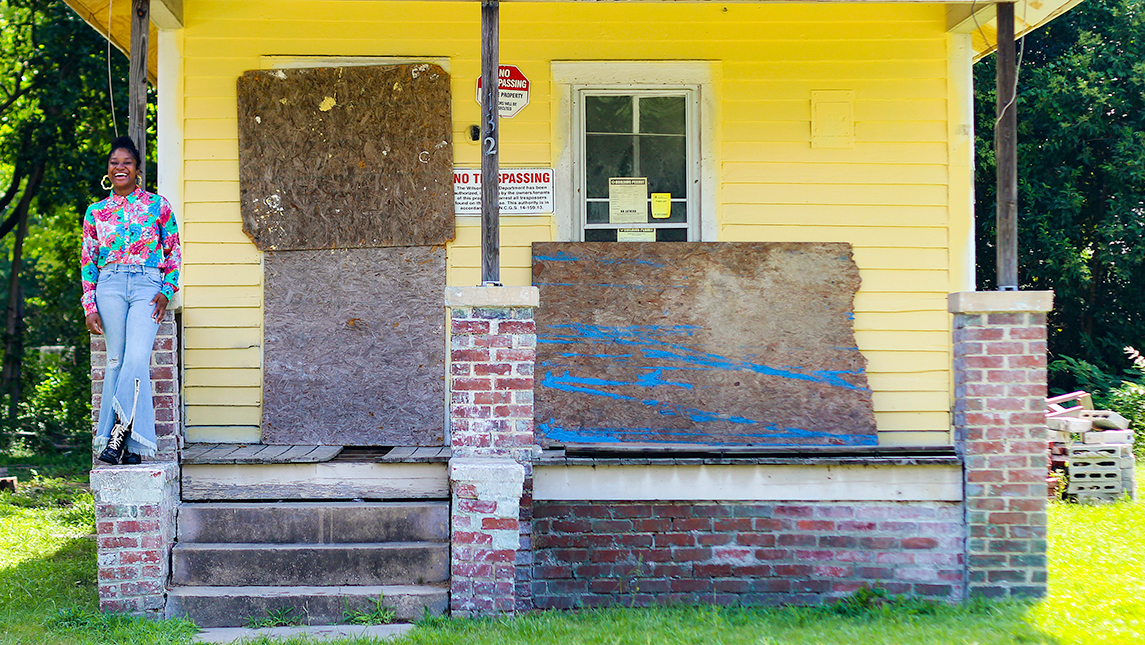
Below: See the progression of 132 Ash St. from it’s original state upon purchase, after the demolition phase, and Davis’s renderings of how the interior will look once restoration is completed.
Join the celebration!
Class of 2020, we invite you to share your #UNCGGrad photos and videos with us on social media using our new digital swag.
Story by Alexandra McQueen, University Communications
Photography by Jessica Nicole Evans
Videography by Alexandra McQueen, University Communications
